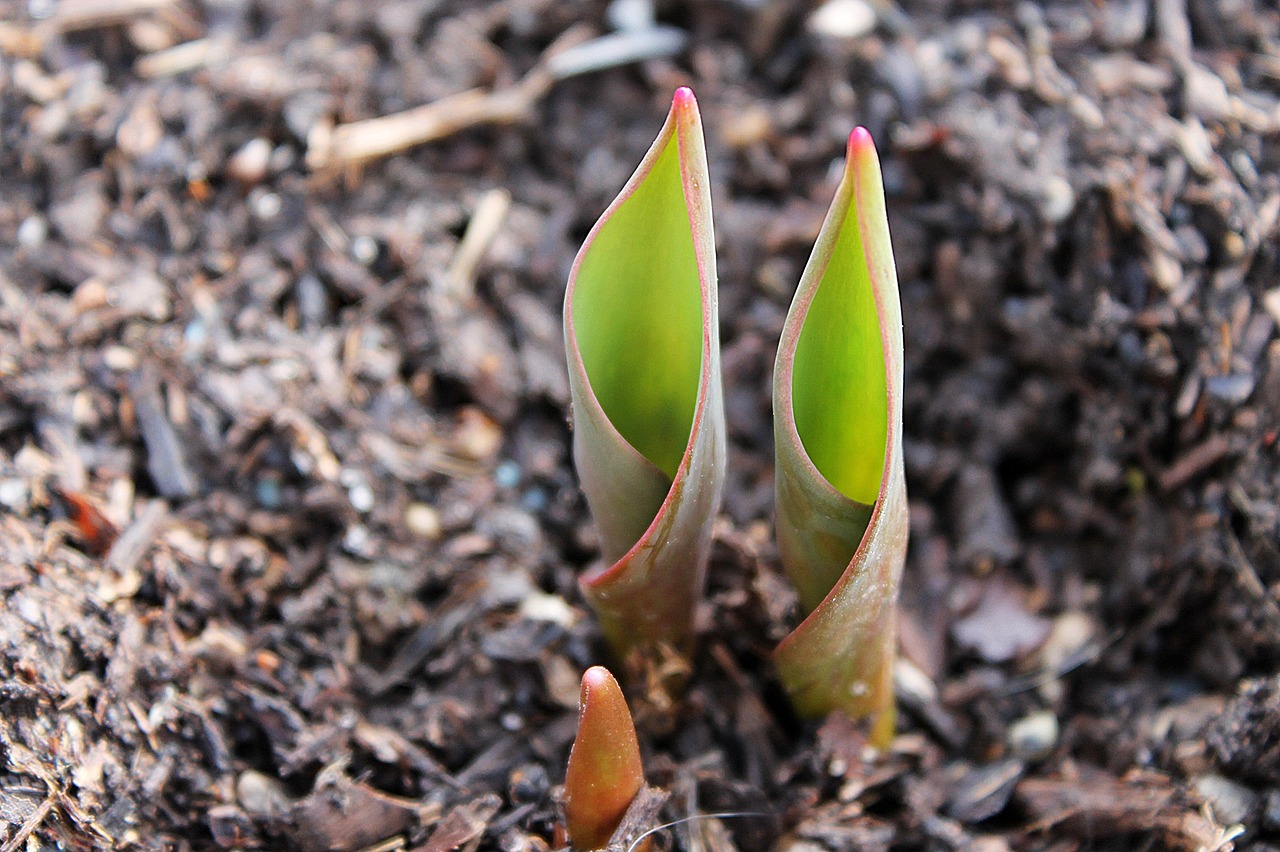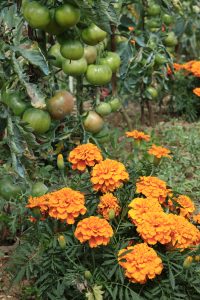We all dream of a flourishing garden, bursting with vibrant blooms and luscious greenery. But unwanted weeds can quickly steal the show, choking out precious plants and spoiling the look and feel of your precious outdoor space. Whilst chemical weed killers offer a quick fix, they often come at a cost to our environment and wildlife.
At Genesis Gardens, we believe in sustainable solutions. Luckily, many natural and eco-friendly methods exist to keep weeds at bay and create a thriving, chemical-free garden. Here are some effective strategies to help you achieve a weed-free haven:
Mulching
 Mulching is a fantastic way to smother existing weeds and prevent new ones from germinating. Apply a layer of organic mulch, around 4-8cm (2-4 inches deep), around your plants. Popular options include bark chippings, composted wood chips or even recycled cardboard. There are several benefits:
Mulching is a fantastic way to smother existing weeds and prevent new ones from germinating. Apply a layer of organic mulch, around 4-8cm (2-4 inches deep), around your plants. Popular options include bark chippings, composted wood chips or even recycled cardboard. There are several benefits:
- Weed Suppression: The mulch layer physically blocks sunlight, hindering weed seed germination and growth.
- Moisture Retention: Mulch helps retain moisture in the soil, reducing the need for frequent watering and benefiting your desired plants.
- Soil Temperature Regulation: A mulch layer helps regulate soil temperature, keeping it cooler in the summer and warmer in winter, which can be beneficial for some plants. It also means reduced watering.
Top Tip: Choose a weed-suppressing fabric underneath the mulch layer for added control, especially in heavily weeded areas. Remember to replenish your mulch layer every year or so, as it decomposes over time.
Companion Planting
 Companion planting is a natural and strategic way to deter weeds and promote healthy plant growth. The idea is to plant specific beneficial species alongside your desired crops. These companion plants can:
Companion planting is a natural and strategic way to deter weeds and promote healthy plant growth. The idea is to plant specific beneficial species alongside your desired crops. These companion plants can:
- Shade the Soil: Tall plants can cast shade on the ground, suppressing weed growth. For example, plant climbing beans next to tomatoes.
- Attract Beneficial Insects: Certain flowering plants attract insects that prey on pests that might otherwise damage your crops. Consider planting marigolds near vegetables to deter aphids.
- Release Weed-Suppressing Chemicals: Some plants release allelopathic chemicals that inhibit weed seed germination. For example, nasturtiums can help suppress weeds around squash plants.
Top Tip: Research the best companion plants for your specific crops to maximise the benefits of this technique.
To dive deeper into this idea, check out our blog Companion Planting: Benefits and Tips.
Natural Weed Killers (with caution)
While we advocate for natural methods, there are a few household ingredients that can be used for spot weed control with caution. Here’s what to know:

Vinegar Power: White vinegar (around 5% acetic acid) can be used as a natural weed killer for young weeds or on hard surfaces like patios. However, it is non-selective and can harm nearby plants. Apply directly to the weed foliage, avoiding contact with desirable plants.
Boiling Water: This method is effective for eliminating small weeds growing in cracks or gravel paths. Be very careful when using boiling water and ensure you don’t damage nearby plants or paving.
Important Note: Always test any homemade weed killer on a small, inconspicuous area of the weed first to ensure it doesn’t damage the plant you’re trying to save.
Prevention is Key
The best way to control weeds is to prevent them from establishing in the first place. Here are some additional tips:
Maintain a Healthy Lawn: A thick, healthy lawn leaves less space for weeds to thrive. Regularly mow your lawn and aerate it occasionally to promote healthy growth.
Keep Your Beds Weed-Free: Regularly hand-pull weeds as soon as you see them – before they have chance to establish a strong root system.
Keep Your Paths Clear: Sweep or brush paths regularly to prevent weeds from taking root in gravel or paving cracks.
Embrace the Power of Nature
By implementing these natural and eco-friendly methods, you can achieve a beautiful, weed-free garden without resorting to harsh chemicals. Remember, a healthy and balanced ecosystem with a variety of plants, particularly native species, is more resistant to weed invasion.
The team at Genesis Gardens is here to help you create a sustainable and thriving garden. We offer expert advice on natural weed control techniques, companion planting and choosing the right mulch for your needs. Contact us today for a consultation and let’s cultivate a garden that’s good for you and the environment!
